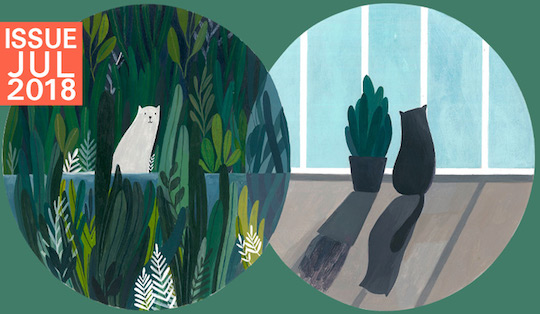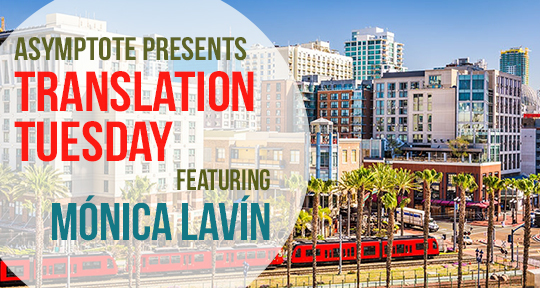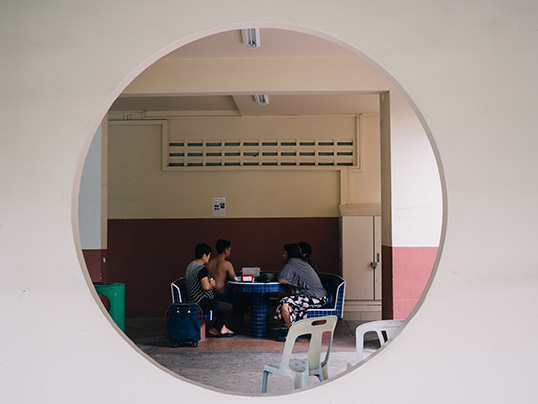The brand new Summer 2018 edition of Asymptote is almost one week old and we are still enjoying the diverse offerings from 31 countries gathered therein. Today, our section editors share highlights from their respective sections:
“2501 Migrants by Alejandro Santiago” is a powerful meditation on the US-Mexico border, compellingly written by Cristina Rivera Garza, and beautifully translated by Sarah Booker. Rivera Garza writes gracefully about sculptures made by Oaxacan artist Alejandro Santiago and his team. Each of these clay vessels contains the spirit of a migrant who, having tried their luck at crossing the border, now stands in mute testimony to the absences and deaths that striate both America and Mexico. In this essay, Rivera Garza explores the multi-faceted meanings of these sculptures and uses them to explore the intricacies of the border-condition—the nostalgia of those who leave Mexico, and the melancholy of those who remain. At this juncture in American history, I can think of no more valuable essay to read today than this one.
—Joshua Craze, Nonfiction Editor
The King of Insomnia, who first appeared as graffiti on the streets of Rio de Janeiro, has now become a central character in the fictional world of the Insomnia people, a creation of artist Tomaz Viana—known as Toz. Life-size three-dimensional Insomnia figures, with a history and traditions drawn from Brazilian and African sources, inhabited the Chácara do Cée Museum and its grounds in 2017. Lara Norgaard, Asymptote’s Editor-at-Large in Brazil, introduces the imaginary culture of Insomnia and interviews the artist who discusses his influences, including the Afro-Brazilian religion candomblé, and explains the evolution of these “fictional people with connections to the night, to the big city, but also to the jungle and the forest.”
—Eva Heisler, Visual Editor









